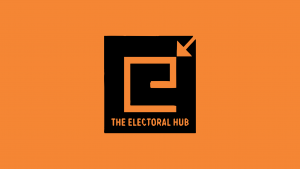Intellectuals and activists of electoral reform in Nigeria are insisting on several additional panel beating of the subsisting electoral framework for improved system performance. Among these are:
- Further amendment of the Electoral Act in some key areas such as the delegate selection process to ensure the quality of delegates so as to better address vote buying and selling, amongst others.
- The Independent National Electoral Commission, (INEC) and civil society organisations, (CSOs) developing and promoting a programme of education on the new Electoral Act so that both the voting public and other interested stakeholders have a fuller and much more qualitative understanding of the provisions of the Act.
- Firmer, more consistent, and more uniform enforcement of the Electoral Act and INEC’s regulations and guidelines to ensure fairness and equity.
Other recommendations that came out of the Sixth Technical Session of The Electoral Forum includes
- INEC ensuring that political parties submit membership register and list of delegates (situations of indirect primaries) timely enough to enable proper verification of the names submitted. This is in addition to INEC accepting only party primaries monitored by it.
- The need for the reform of the process of emergence of candidates with a specific focus on the quality of delegates that would participate in the selection of candidates at party primaries.
- The need for INEC, political parties, CSOs, and the National Orientation Agency, (NOA) to conduct a deeper and more regular public education on the Electoral Act as well as INEC’s regulations and guidelines and the electoral procedures well beyond the election period.
- The criminalization of vote buying and selling as well as delegate inducements, with guarantees of strict enforcement of the penalties through collaborative efforts amongst relevant agencies such as the Police, EFCC, ICPC, and INEC.
- A reconstruction and reconfiguration of voting cubicles to further guarantee the secrecy of the ballot/voting.
 The participants, among them Professor Attahiru Jega, Hajia Amina Zakari, Professor Antonia Simbine, Professor Babatunde Babawale and Mrs Gloria Ukpong hinged their recommendations on how presidential candidates emerged and how the two recent governorship elections were conducted.
The participants, among them Professor Attahiru Jega, Hajia Amina Zakari, Professor Antonia Simbine, Professor Babatunde Babawale and Mrs Gloria Ukpong hinged their recommendations on how presidential candidates emerged and how the two recent governorship elections were conducted.
The Forum commended what a statement from the session considers as the many progressive provisions of the new Electoral Act 2022, the conduct of party primaries by some of the political parties, the supervision of the Ekiti and Osun governorship election, and security agencies during these electoral activities. It also expressed concerns about the integrity and survival of Nigeria’s democratic system, agreeing that the Electoral Act 2022 requires a further amendment to safeguard the process. Participants particularly noted issues of the nomination of candidates and election of delegates as very important aspects of the electoral process and should be conducted appropriately.
On the Ekiti and Osun States governorship elections, The Forum commended INEC for the successful supervision of these elections. “There is clear evidence that our elections are getting better although still challenged by vote-buying and selling. All stakeholders did better – INEC, security agencies, and the electorate. Voter mobilization had improved with a higher turnout of 54.48% turnout in relation to PVC collection”, the statement added, expressing deep concern though over vote buying and selling and the high number of rejected votes. The case of 18,674 invalid votes/rejected votes in the recent Osun State gubernatorial election was particularly cited.
Conducted under the theme Reflection on Post-Political Party Primaries Electoral Environment: Scenario Planning, the meeting, which was supported by the Open Society Initiative for West Africa, (OSIWA), focused on three key electoral issues listed by Professor Adebayo Olukoshi, the Chair of the Forum, to be examination of developments during the primaries by the political parties; discussing the post-political primaries’ environment; analysing the governorship elections in Ekiti and Osun states as well as their implications for the general election; identifying strategies and mechanisms for addressing the challenges of the primaries and the elections such as the phenomenon of delegates inducements and vote buying and recommending strategies on how to improve the electoral process in preparations for the 2023 general election and beyond.
The Electoral Forum which put the talk session together is an initiative of The Electoral Hub, the Abuja based platform that pools resource persons from electoral management bodies together with other electoral stakeholders to conceptualise solutions to the unique problems facing electoral governance in Nigeria. It is chaired by Professor Adebayo Olukoshi and supported by the MacArthur Foundation and the Open Society Initiative for West Africa (OSIWA).




























